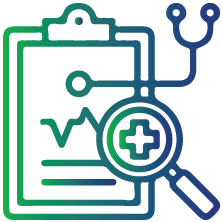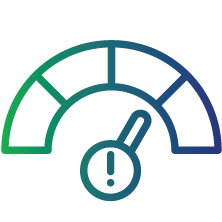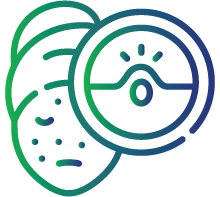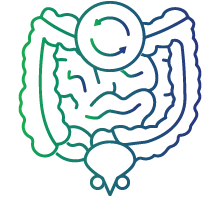
IHC - Any 5 IHC Markers Test
IHC - Any 5 IHC Markers Test
Immunohistochemistry (IHC)- 5 markers is a specialized laboratory test that uses antigen-finding properties of antibodies to explicitly detect five distinct antigens (aka markers) within a biopsy tissue sample depending on the patient's specific diagnostic requirements. The test uses a microscope to see otherwise invisible antigens that may indicate medical conditions.
IHC is a particularly valuable tool for diagnosing and determining cancer characteristics, such as benign or malignant status, tumor stage and grade, and origin of metastasis, aiding doctors in formulating the appropriate treatment.
What is IHC-Any 5 markers Test Used For?
Your doctor may request an IHC test

To diagnose medical conditions like cancer, muscle disorders etc.

To determine disease severity and aggressiveness

To predict and monitor treatment response

To develop new drug treatments
Symptoms of Cancer
Common alarming symptoms of cancer include

Unexpected weight loss

Excessive tiredness in spite of proper rest

Unbearable pain in the body

Visible skin changes

Unusual bleeding and problems during peeing

Nagging cough with blood in it

Change in bowel or bladder habits
Preparation for Test
No special preparation is required on your part. However, you may be asked to stop taking blood-thinning medications for a certain period of time leading up to the biopsy. Also, depending on the part of your body to be biopsied, your doctor may ask you not to eat or drink before the procedure.
Interpretation of Test Results
Interpretation of immunochemistry results for five markers as follows:
Positive result (Abnormal)
This report suggests the presence of one or more antigenic markers in the provided tissue sample, indicating the diagnosis of a suspected health condition you may have.
Negative result (Normal)
This report indicates that the biopsy sample does not contain targeted markers but may not definitively exclude the suspected health condition.
FAQs
What is the benefit of doing an immunohistochemistry test?
The main benefit of IHC testing is that it helps doctors understand the disease better, leading to more effective treatment for a complete patient recovery.
How frequently should I get the IHC 5 marker test?
It purely depends on your doctor's recommendation, which is again based on your unique health condition. It is usually requested when there is a strong clinical suspicion of diseases, and the doctors want to check for more specific characteristics to make a diagnosis.
What factors can affect the results of IHC 5 marker testing?
Although rare, the IHC testing isn't 100 percent accurate and may give false positive or negative results due to several factors, including:
- Technology, equipment, and materials used
- Storage and handling of the sample
Errors made throughout the process
Are there any risks associated with the IHC – 5 marker testing?
The test poses minimal risk of infection, bleeding, and an adverse reaction to anesthesia, which may occur at the time of collection of the biopsy sample.
What diseases can be detected using IHC -5 marker testing?
IHC diagnostic application spans various diseases, from cancer to infectious, autoimmune, neurodegenerative, and blood disorders, aiding in personalized treatment planning.

